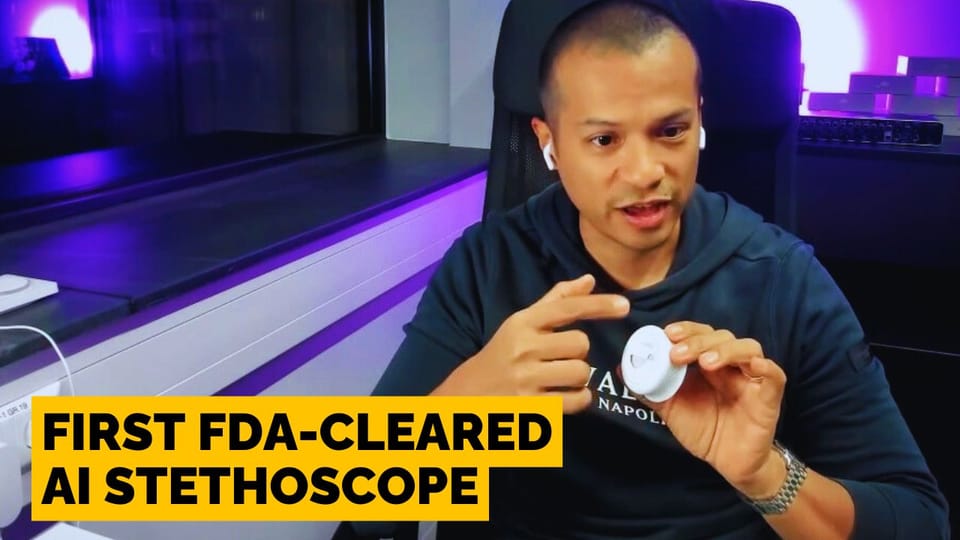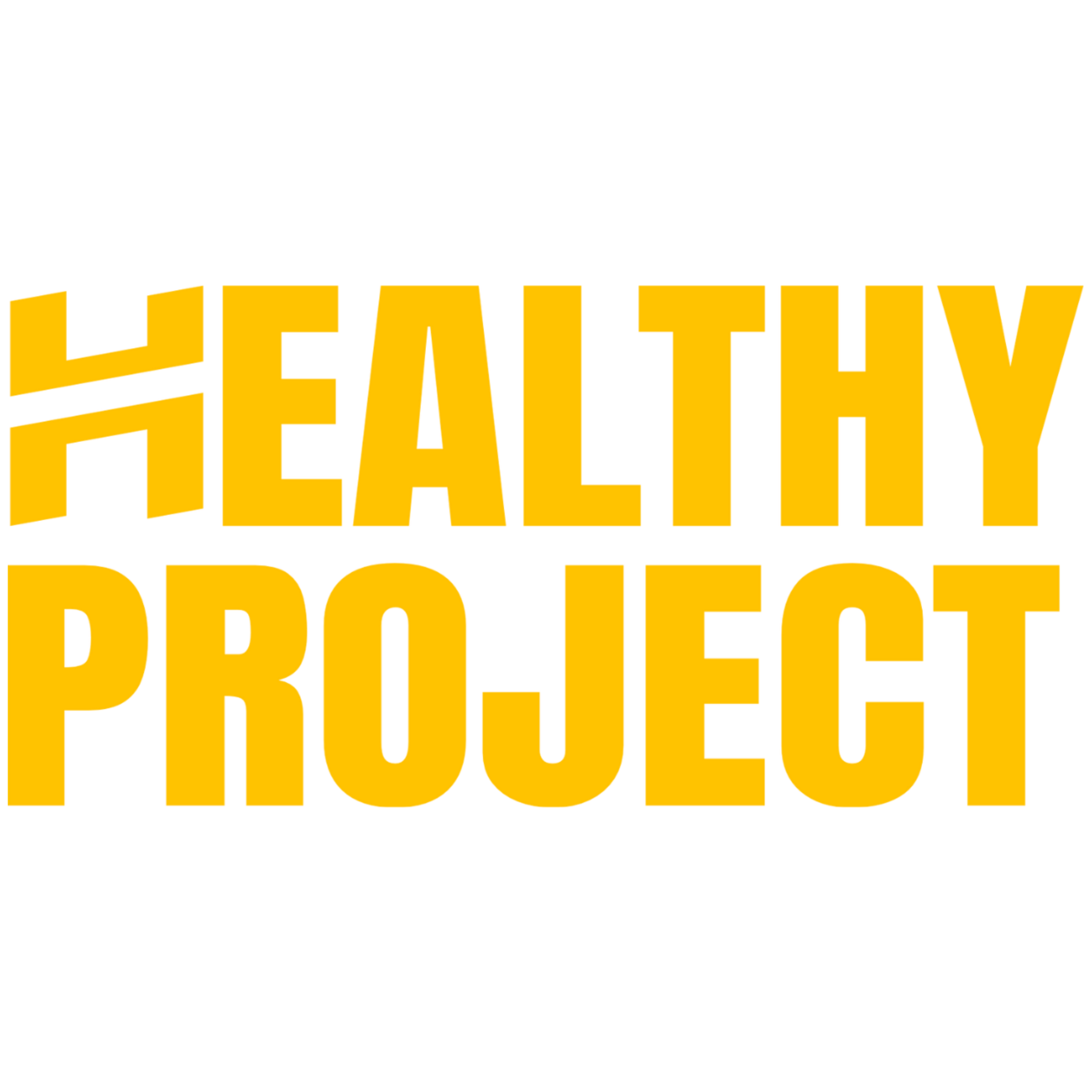FDA-Cleared Smart Stethoscope with AI Scribe Launches: What Doctors Need to Know

Keikku represents the first FDA-cleared smart stethoscope that combines traditional auscultation with an integrated AI scribe system. The device uses gesture controls to activate transcription during patient encounters and analyzes heart and lung sounds through machine learning. Clinical users report saving approximately six hours per week on documentation tasks.
What Makes This Device Different
Keikku functions as both a diagnostic tool and a documentation system. The device contains two primary sensors: a stethoscope head for cardiac and respiratory auscultation, and a microphone array that captures ambient conversation during patient visits.
Jhonatan Bringas Dimitriades, a physician and CEO of Lapsi Health, explains the device consolidates technologies that previously existed as separate tools. "We had these scribe technologies and we had these generative AI reasoning tools and we have the stethoscopes, we have the AI tools, but they are all spot solutions, disintegrated from each other," he says.
The device processes audio data and structures the information into SOAP notes (Subjective, Objective, Assessment, Plan), which clinicians can then transfer to electronic health record systems.
How the Technology Works
Clinicians can wear Keikku clipped to their waist, place it on a desk, or hold it during examinations. Gesture controls activate the transcription function, eliminating the need to interact with a separate computer or phone during the patient encounter.
The stethoscope component delivers acoustic data that the device analyzes using artificial intelligence. According to Bringas Dimitriades, the system can identify heart murmurs, determine whether murmurs occur during systole or diastole, and detect abnormal respiratory sounds.
Clinical specialists, including pulmonologists, cardiologists, internal medicine physicians, and pediatricians, have provided feedback on the audio quality and diagnostic capabilities.
Clinical Impact on Documentation Time
Dr. Harpreet Sui, a Keikku user, recently shared on LinkedIn that the device "revolutionized my practice" within four days of use. The company estimates clinicians save approximately six hours weekly on documentation tasks.
Bringas Dimitriades notes that this time-saving benefits patients directly. "They can really look at their doctors checking the eye, tell them what they are feeling," he explains. Patients know their physician has captured accurate information without dividing attention between the conversation and note-taking.
Addressing Physician Burnout
Research shows physician burnout has reached critical levels, with administrative burden serving as a major contributing factor. Keikku addresses this issue by reducing documentation time and allowing clinicians to maintain eye contact and engagement during patient visits.
"What Keikku wants to do is address this by giving them freedom, unburdening the administration, allowing them to be able to have more control on the tools that they use," Bringas Dimitriades says.
The device aims to let physicians maintain both accuracy and efficiency without sacrificing either quality.
Data Security and Privacy Compliance
Keikku operates as a HIPAA-compliant system. The device also meets GDPR standards, which impose stricter requirements than HIPAA regulations.
As a Class II medical device, Keikku must meet FDA standards and European Commission requirements for medical device manufacturers with ISO certification. These standards exceed typical requirements for uncertified software companies.
The company maintains data on secure cloud servers within specific geographical areas, implements regular cybersecurity testing, and follows automated compliance monitoring protocols.
Rollout of AI Analytics Features
Lapsi Health plans to release the first cardiac analytic features through the App Store by the end of 2025. Respiratory sound analysis will launch in the first or second quarter of 2026.
The phased approach allows the company to validate each analytic capability before release. Bringas Dimitriades indicates future updates will add new sensors beyond sound, expanding the device's diagnostic capabilities.
Development Timeline and Clinical Validation
Development began in 2022 when Diana Frankenstein, co-founder of Lapsi Health, conceived the initial concept. The team launched the first generation of Keikku in December 2024 to gather feedback from clinicians.
The current version incorporates generative AI capabilities that were part of the original vision. "This is the first step of generative AI entering the world of medical devices," Bringas Dimitriades says.
The company employs teams in the Netherlands, Finland, and the United States. The extended development period reflects the rigorous safety and validation requirements for medical devices, which differ substantially from consumer electronics or standard software products.
Who Can Benefit from This Technology
Primary care physicians, specialists, and clinicians in various practice settings can use Keikku. The device suits practices where documentation burden interferes with patient interaction and clinical efficiency.
Physicians who value diagnostic accuracy alongside time efficiency may find the combined functionality useful. The integration of multiple technologies into one device eliminates the need to manage separate scribe services, stethoscopes, and documentation tools.
How to Access Keikku
Healthcare providers interested in the device can visit Keikku.health for detailed specifications and ordering information. The company provides comprehensive product information in compliance with medical device manufacturer requirements.
An AI chatbot on the website answers common questions. Clinicians can also contact Bringas Dimitriades directly through LinkedIn, Instagram, or X (formerly Twitter) with specific questions about clinical applications or practice integration.
The Bottom Line
Keikku combines traditional stethoscope functionality with AI-powered transcription and clinical analytics in a single FDA-cleared device. Early clinical feedback indicates meaningful time savings and improved patient interaction during visits.
The device addresses physician burnout by reducing administrative burden while maintaining diagnostic accuracy. As analytics features roll out through 2026, the technology may expand its clinical utility beyond current capabilities.
Healthcare providers seeking to reduce documentation time while enhancing patient engagement may find value in evaluating this integrated approach to clinical technology.
About This Article
This article is based on an interview conducted by Corey Dion Lewis of The Healthy Project Podcast with Jhonatan Bringas Dimitriades, CEO of Lapsi Health and practicing physician. The information reflects product details current as of the interview date.
Medical Device Information
Keikku is an FDA-cleared Class II medical device. Healthcare providers should review complete product specifications and clinical validation data before adopting new medical technologies in their practice.
For More Information
Visit Keikku.health for technical specifications, clinical validation studies, and ordering details. The Healthy Project Podcast features additional interviews with healthcare technology innovators and public health professionals.
